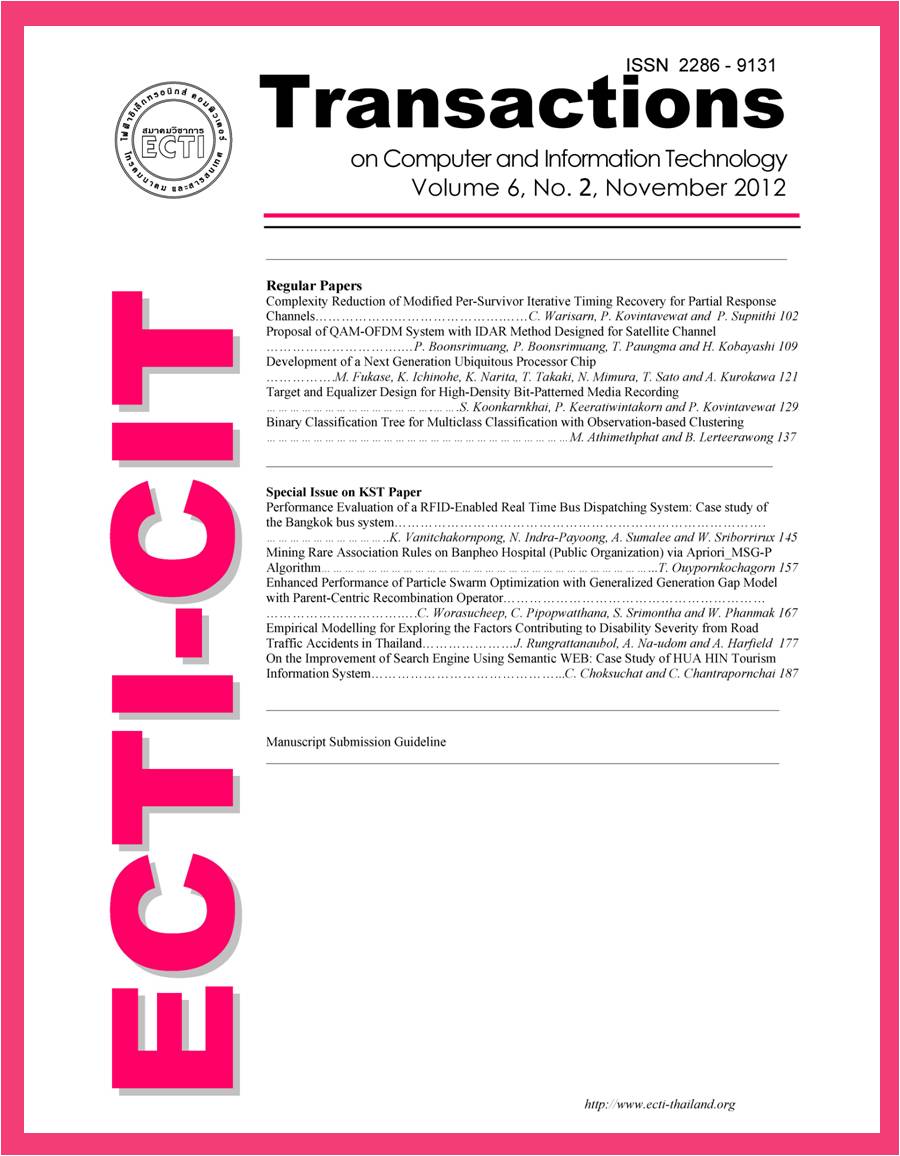Complexity Reduction of Modied Per-Survivor Iterative Timing Recovery for Partial Response Channels
Main Article Content
Abstract
The problem of timing recovery operating at low signal-to-noise ratio has been recently solved by a modified per-survivor iterative timing recovery (MPS-ITR) proposed in [1], which jointly performs timing recovery, equalization, and error-correction decoding. In practice, this scheme exploits a splitpreamble strategy in conjunction with a per-survivor soft-output Viterbi algorithm equalizer to make it more robust against severe timing jitters or cycle slips. Although the MPS-ITR outperforms existing iterative timing recovery schemes [1], its complexity is extremely high. Therefore, this paper proposes a reduced-complexity MPS-ITR scheme (denoted as MPS-ITR-M) to make it more implementable in reallife applications. This is achieved by applying the M-algorithm [2] to the MPS-ITR. Numerical results show that at low-to-moderate complexity, the MPSITR- M performs better than other schemes.


